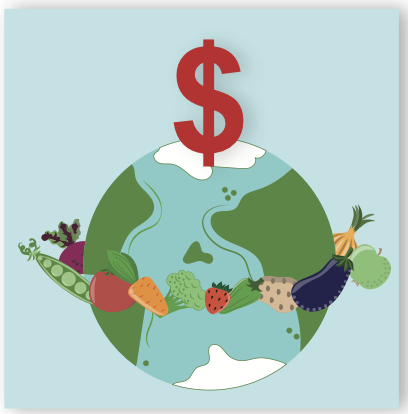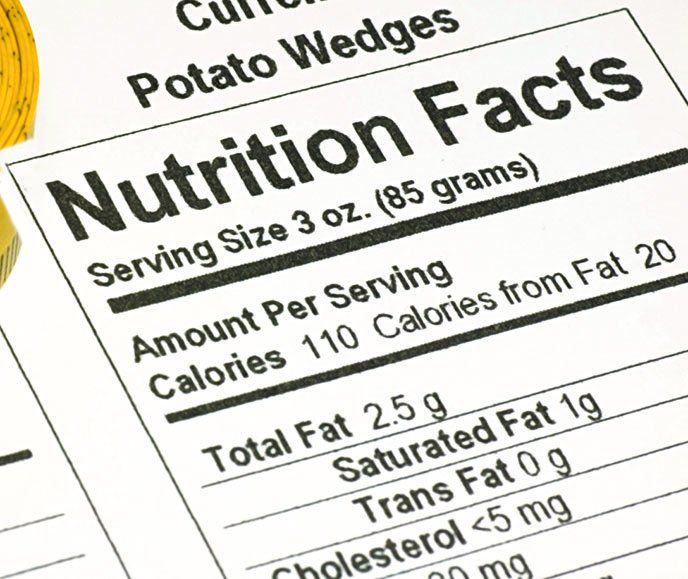Sugary Beverages Linked to Liver Risk
You know that sugar-sweetened sodas can pack on the pounds and contribute to the risk of heart disease and diabetes. But new Tufts research reports that sugary drinks may also increase your odds of developing non-alcoholic fatty liver disease (NAFLD).Characterized by a buildup of fat in the liver unrelated to alcohol consumption, NAFLD frequently goes undetected because it often presents no symptoms; as many as 25% of US adults may have the disease. NAFLD may cause the liver to swell, leading to scarring (cirrhosis) over time and even to liver cancer or liver failure.
Calculating Human Toll of Sugary Drinks
Consumption of sugary drinks may lead to an estimated 184,000 adult deaths each year worldwide, according to research recently published in the journal Circulation. Many countries in the world have a significant number of deaths occurring from a single dietary factor-sugar-sweetened beverages, says Dariush Mozaffarian, MD, DrPH, senior author of the study and dean of Tufts Friedman School. Dr. Mozaffarian is also editor-in-chief of the Health & Nutrition Letter. It should be a global priority to substantially reduce or eliminate sugar-sweetened beverages from the diet.
Chain-Restaurant Calorie Counts Delayed
Responding to pleas from the restaurant industry, the US Food and Drug Administration pushed back its deadline for chain eateries and other food outlets to post calorie counts on their menus. The delay, to Dec. 1, 2016, gives restaurants with 20 or more locations, movie theaters, vending-machine firms, amusement parks and supermarkets with takeout food an extra year to comply. Pizza parlors had been especially vocal against the rule. Even some supporters cited the lack of a key guidance document from the FDA, with less than six months to go, as necessitating a delay. Others, however, said the extension only gives the restaurant industry more time to lobby against the rule ever going into effect. (For tips on healthy eating out, see this issues special pull-out supplement.)
Four Cups of Coffee OK-But Watch the Energy Drinks
After the fourth espresso, maybe its time to switch to decaf. Thats the message from European Union (EU) food-safety regulators, who for the first time recommended that adults should keep their daily caffeine intake below 400 milligrams. Four standard espressos (or two and a half Starbucks venti lattes) would add up to about that much, but regulators are actually more concerned about less-traditional sources of caffeine, including colas and energy drinks. The findings were similar to the recent Dietary Guidelines Advisory Committee report. An EU spokesperson said, The main message of the report is that consumers must account for caffeine consumption from sources other than coffee. The health risk is not enormous, but it exists.
Tracking Veggie Trends
Although American farmers, responsible for four-fifths of the vegetables we eat, produced 5% more last year, American consumers arent eating more veggies. A recent US Department of Agriculture report says vegetable consumption was almost flat at about 1.6 cups per capita. The report did reveal a few encouraging shifts in consumption, however, with slight declines in the popularity of fresh white potatoes and processed potatoes, iceberg lettuce and sweet corn. Among the generally more nutritious veggies trending up are Romaine and other lettuces, sweet potatoes, cauliflower, carrots, asparagus and artichokes.
What Does the Trans Fat Ban Mean to You?
Artificial trans fats, in the form of partially hydrogenated oils, once hailed as a healthy alternative to butter and shortening, will all but disappear from the US food supply by June 2018. Following up on a preliminary 2013 ruling, the US Food and Drug Administration announced this summer that artificial trans fats would no longer be considered generally recognized as safe (GRAS) The agency gave the food industry three years to reformulate products without artificial trans fats or to petition for specific, limited uses, such as in sprinkles atop ice cream.
Smart Strategies for Healthy Eating Out
For the first time, Americans are spending more money eating out at restaurants than buying food in grocery stores. According to the US Census Bureau, consumer spending at restaurants narrowly edged grocery-store purchases in December 2014, $50.4 billion to $50.2 billion. That tiny gap has widened, with restaurant spending exceeding groceries by nearly 3% as of April. Factors driving the switch included an increasing trend to buying groceries in warehouse and club stores, with cheaper prices, and lower gas prices freeing up funds for eating out. The total doesnt include ready-to-eat dishes purchased at upscale supermarkets, which further diminish what were cooking from scratch.
Big Apple Flags Restaurant Salt
In New York City, Mayor Bill de Blasio unveiled a plan that would require many chain restaurants to attach a menu saltshaker icon (pictured) to any dish exceeding 2,300 milligrams of sodium-the entire days limit in a single meal. New York would become the first US city to adopt such a rule. Examples of dishes that exceed the 2,300-milligram level include Applebees chicken-fried steak (3,240 milligrams), TGI Fridays Jack Daniels Ribs (3,220 milligrams) and KFCs Famous Bowl (2,350 milligrams). By setting the bar so high, however, some experts noted the cautionary icon would not be required for items that nonetheless contain more than half a days sodium, such as McDonalds bacon and cheese quarter-pounder (1,380 milligrams) or Olive Gardens Florentine Rollatini with Chicken (1,510 milligrams).
Consumers Rate Food Preservatives and Chemicals as Most Harmful
Food manufacturers and franchises that are abandoning artificial preservatives and chemical additives are in sync with (or perhaps influencing) Americans attitudes, according to a new survey by CivicScience. The poll of 4,200 US consumers found worries about preservatives and chemicals in food topping all other concerns, including those with stronger scientific underpinnings. While 35% cited preservatives and chemicals when asked, Which of these do you feel is most harmful to your nutritional health?, only 15% said saturated fat and 13% said total sugar. Those were followed by sodium (9%), added sugar (8%), GMOs (7%) and carbs (4%). Another 9% picked, I dont see any of these as harmful to my health.
Are Raw Onions More Nutritious Than Cooked Onions?
Onions are nothing to cry over. These flavorful bulbs are an excellent source of healthful chemicals: vitamin C, flavonoids, antioxidants, and sulfur compounds. Onions are nutrient powerhouses, whether eaten cooked or raw; however, raw onions have higher levels of sulfur compounds.






























